Florida State University
FSU | The Visitor Center

The Visitor Center
- Department Tours
Additional Department Tours & Meetings
The following academic colleges and departments offer visit opportunities. If the college or department you are interested in is not listed here, you are welcome to contact them to ask about visiting while you are on campus. Please note some of our academic colleges may not be able to accommodate your request.
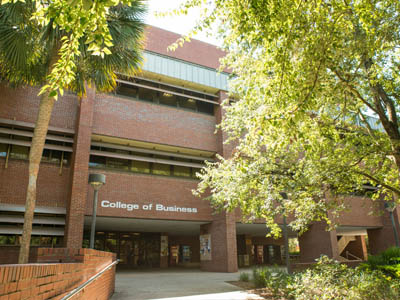
College of Business In-person tours are offered during the fall and spring semesters, for more information visit; business.fsu.edu/visitfsubiz .
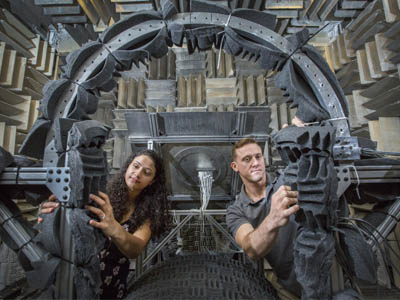
College of Engineering The FAMU-FSU College of Engineering conducts tours of our engineering building complex located at 2525 Pottsdamer St., Tallahassee, FL. Tours are offered on Mondays and Fridays at 11:00 am and 2:00 pm, excluding holidays. All guests are encouraged to register at least two business days in advance; https://eng.famu.fsu.edu/prospective/tour-the-college .
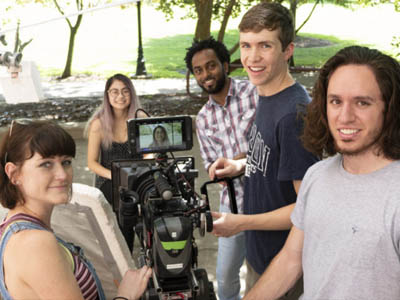
College of Motion Picture Arts Offers virtual and in-person events, for more information visit; film.fsu.edu/visit .
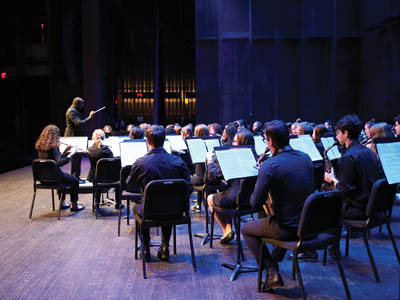
College of Music Offers virtual and in-person events, for more information visit; music.fsu.edu/visit .
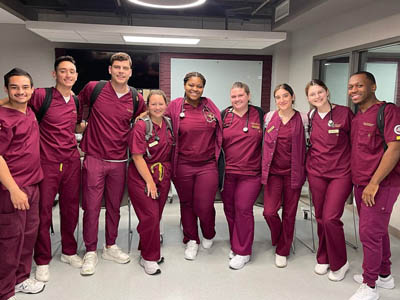
College of Nursing Offers virtual and in-person information sessions during Fall and Spring semesters, for more information visit; nursing.fsu.edu/about/visit-college .
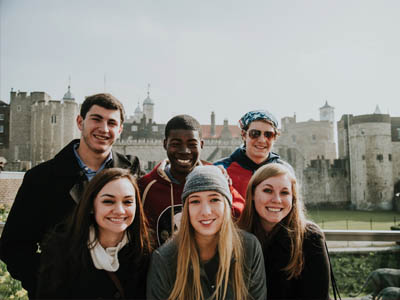
International Programs New Noles can participate in a transformative first-year experience by studying abroad with FSU International Programs through the renowned First Year Abroad (FYA) program. FYA participants benefit from small classes, lifelong friendships, and the opportunity to earn an out-of-state tuition waiver (non-FL residents) or a $1,000 scholarship (FL residents). Prospective students and families interested in learning more about the FYA program can book in person and virtual information sessions with International Programs here; [email protected] .
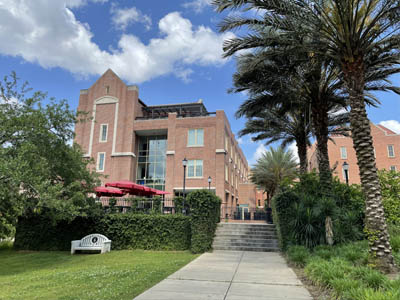
University Honors Program The University Honors Program (UHP) offers students specialized courses, co-curricular programs, dedicated faculty, and access to resources for research and professional development. With a focus on academic excellence and holistic support, the UHP brings together the best resources at FSU for ambitious student-scholars who want to develop as campus influencers, thought-leaders, and informed global citizens. To learn more, sign up for virtual and in-person information sessions here; honors.fsu.edu/people-and-places/information-sessions-honors .
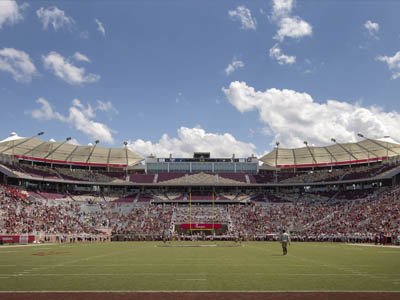
The Seminole Experience The Seminole Experience takes fans on a walking tour through some of Florida State’s most historic athletic venues. Experience Guides deliver the story of the program’s rich history and traditions through stops that include Doak Campbell Stadium, Dick Howser Stadium, JoAnne Graf Field, and The Seminole Soccer Complex and provide great group photo opportunities. Tour availability may vary due to FSU sporting events occurring at or around our normal scheduled times. For more information visit; seminoleexperience.com .
FSU & Tallahassee
- Visit Tallahassee
- Campus Map
- Directions & Parking
- Seminole Tribe
- University Land Acknowledgement Statement
- Campus Safety
- Undergraduate Majors and Degrees
- Combined Bachelor's & Master's Degrees
- Graduate Degree Programs
- FSU Highlights & Rankings
- Office of Admissions
Student Resources
- University Housing
- Seminole Dining
- University Health Services
- Center for Health Advocacy & Wellness
- Office of Accessibility
- Student Veterans
- Title IX Information
- Submit a Report
Student Life
- Recognized Student Organizations
- Campus Recreation
- Fraternities & Sororities
- Center for Leadership & Service
- Center for Global Engagement
- FSU Abroad
Florida State University
FSU | University Registrar
Main navigation Pulldown
University registrar, 2023-2024 undergraduate bulletin.
- General Bulletins
- Undergraduate Departments
Undergraduate Program in Recreation and Tourism Management
Dedman college of hospitality.
Website : https://dedman.fsu.edu/current-students/undergraduate-programs/recreation-and-tourism-management
Department Chair: Cynthia Johnson
The Recreation and Tourism Management program offers courses leading to the Bachelor of Science (BS) degree in Recreation and Tourism Management. The degree is designed to prepare individuals for professional positions in such settings as resort and commercial recreation companies, corporate and employee recreation, public parks and recreation, youth-serving and military agencies, campus recreation, and travel and tourism. With a bachelor's degree from this program, students may qualify for employment as recreation program supervisors/managers/coordinators, facility managers, adult and youth sports supervisors, activities directors, tourism services managers, and guest service coordinators. For more information, contact the Department Chair, Cynthia Johnson, by e-mail at [email protected] or by phone at (850) 645-9980 . The Recreation and Tourism Management program offers its full degree program at both the Tallahassee campus and the Panama City campus.
Florida State University provides academic advising to students interested in pursuing coursework in the Dedman College of Hospitality. For students who want to take courses on the Tallahassee campus, contact Daniel Read by email [email protected] . For students who want to take classes on the Panama City campus, contact the Academic Advising & Student Success Center by e-mail at [email protected] or by phone at (850) 770-2288 .
State of Florida Common Program Prerequisites for Recreation
The Florida Virtual Campus (FLVC) houses the statewide, internet-based catalog of distance learning courses, degree programs, and resources offered by Florida's public colleges and universities, and they have developed operational procedures and technical guidelines for the catalog that all institutions must follow. The statute governing this policy can be reviewed by visiting https://www.flsenate.gov/Laws/Statutes/2021/1006.73 .
FLVC has identified common program prerequisites for the degree program in Recreation. To obtain the most up-to-date, state-approved prerequisites for this degree, visit: https://cpm.flvc.org/programs/85/207 .
Specific prerequisites are required for admission into the upper-division program and must be completed by the student at either a community college or a state university prior to being admitted to this program. Students may be admitted into the University without completing the prerequisites but may not be admitted into the program.
Recreation and Tourism Management Degree Requirements
To earn a bachelor's degree in Recreation and Tourism Management, students must successfully complete the following: A minimum grade of "C–" or better must be earned in all program coursework.
Hospitality Core (18 credits):
HFT 3424 Hospitality Financial Analysis (3)
HFT 3431 Hospitality Managerial Accounting (3)
HFT 3806 Introduction to Food and Beverage Management (3)
HFT 4502 Integrated Marketing for Hospitality (3)
HFT 4224 Hospitality Leadership and Ethics (3)
HFT 3941 Management Internship (3-12)*
Recreation and Tourism Major Requirements (21 Credits):
LEI 1000 Introduction to Recreation and Tourism (3)
LEI 3420 Recreation Activities Leadership (3)
LEI 3435 Planning Recreation Experiences (3)
HFT 3700 Tourism Management and the Environment (3)
LEI 3843 Commercial Recreation and Tourism (3)
LEI 4602 Planning and Maintenance of Facilities in Leisure Systems (3)
HFT 4941 Field Study in Hospitality Administration (0)
HFT or LEI Elective (3)*
*Recreation and Tourism Management majors must complete a minimum of three credit hours of HFT 3941 (Management Internship). Majors may complete additional credit hours (up to twelve total) of HFT 3941 (Management Internship) and use them as substitutes for elective requirements (listed below).
Students must complete at least 1,000 hours of work experience in the recreation/hospitality industry. The work experience must be completed at the post-secondary level. Students must register for HFT 4941 (Field Study in Hospitality Administration) in their final semester.
Recreation and Tourism Management Electives:
LEI 1181 Leisure and Recreation Adaptations for All Ages and Abilities (3)
LEI 2318 Events: Love Them, Then Leave Them. What's My Footprint? (3)
LEI 3266 Outdoor Adventure Ed (3)
LEI 3312 Introduction to Special Events (3)
LEI 4314 Event Operations and Management (3)
LEI 4524 Leadership and Supervision in Recreation, Tourism, and Events (3)
LEI 4551 Administration of Recreation, Tourism, and Event Organization (3)
LEI 4561 Special Event Promotions (3)
LEI 4864 Technology for Events (3)
HFT 2060 Coffee and Tea (3)
HFT 2061 Ales, Lagers, and International Culture (3)
HFT 2062 International Wine and Culture (3)
HFT 2063 Distilled Spirits (3)
HFT 2080 International Protocol on Western Behavior and Service Standards (3)
HFT 2452 Hospitality Supply Management (3).
HFT 2704 A Survey of Ecotourism (3)
HFT 2716 International Travel and Culture (3)
HFT 2801 Tequila, Agave Spirits and Culture (3)
HFT 2876 Italian Wine and Culture (3)
HFT 2890 International Food and Culture (3)
HFT 2895 Italian Food and Culture (3)
HFT 3100 Introduction to Global Club Management (3)
HFT 3221 Human Resource Management (3)
HFT 3240 Managing Service Organizations (3)
HFT 3242 Hospitality Communications (3)
HFT 3270 Resort Operations (3)
HFT 3519 Conventions Services and Events Management (3)
HFT 3542 Event Management (3)
HFT 3771 Introduction to Maritime Hospitality
HFT 3891 Global Food Controversy (3)
HFT 4064 Ales, Lagers, and Culture (3) Note: Students must be twenty-one years of age to take this course.
HFT 4205 Conversational Spanish for Hospitality Managers (3)
HFT 4866 Wine and Culture (3) Note: Students must be twenty-one years of age to take this course.
HFT 4905 Directed Individual Study (1–3)
HFT 4930r Special Topics in Hospitality Administration (1–3)
Computer Skills Competency
All undergraduates at Florida State University must demonstrate basic computer skills competency prior to graduation. As necessary computer skills vary from discipline to discipline, each major determines the courses needed to satisfy this requirement. Undergraduate majors in recreation and tourism management satisfy this requirement by earning a grade of "C–" or higher in CGS 2060 or CGS 2100 or equivalent.
Requirements for a Minor in Recreation and Tourism Management
A minor in Recreation and Tourism requires twelve hours of coursework. The minor consists of LEI 1000 and any three of the following courses: LEI 3266, LEI 3420, LEI 3435, LEI 3843, LEI 4524. A grade of "C–" or better must be earned in each course counted toward the minor.
University Honors and Honor Societies
The Dedman College of Hospitality encourages eligible students to participate in university honors and in the honors in the major program. For a list of University-wide honor societies officially recognized by Florida State University, requirements, and other information, see the "University Honors Office and Honor Societies" chapter of the General Bulletin .
Definition of Prefixes
HFT —Hospitality Management
LEI —Leisure
Courses for Recreation and Tourism Management Majors
LEI 1181. Leisure and Recreation Adaptations for All Ages and Abilities (3) . This course introduces students to the concepts of leisure and recreation for people of varying abilities. Students review best practices for inclusion in facilities and programs. This course is interactive, with student participation through simulations, group discussions, presentations, and opportunities for personal reflection.
LEI 1264. Backpacking (1) . (S/U grade only.) This is an introductory course designed to prepare participants for backpacking in low-level terrain in a safe and environmentally sound manner. The course covers equipment, clothing, food preparation, route selection, safety and risk management, environmental practices, and "no trace" camping.
LEI 1267. Canoeing/Kayaking (1) . (S/U grade only.) This course is designed to give students an applicable knowledge of the sport/activity of canoeing and kayaking, as well as develop students' physical and mental ability to learn and execute canoeing and kayaking skills. This is a beginner flat water and Class 1 level canoe course.
LEI 1269. Rock Climbing (1) . (S/U grade only.) This is a basic rock-climbing class. The material covered is for students with little or no experience or knowledge of rock climbing. This class is experiential in nature; therefore, being present and active in class is necessary. Skills may include but are not limited to knot-tying, belaying, bouldering, safety concerns, route reading, and technique.
LEI 1000. Introduction to Recreation and Tourism (3) . This course is an exploratory course designed to serve those students curious about or committed to recreation and tourism as a major. Students will be introduced to the types of providers and services offered by professionals working in the industry. The career options available in the recreation and tourism industry are also explored.
LEI 3265r. Challenge Course Facilitation Training (1–4) . This course provides the student with the knowledge and skills to lead new games and field games and to facilitate group initiatives, and low ropes and high ropes challenge courses. The student learns to facilitate diverse groups to develop teamwork, and leadership skills, improve group dynamics, increase trust and improve communication, and direct a wide variety of challenge course activities. The course stresses safety, particularly in the use of ropes course apparatus, equipment, sequencing, and processing. The challenge-by-choice philosophy is followed throughout. This course comprises four separate components, which must be taken in sequence but may be taken in subsequent semesters.
LEI 3266. Outdoor Adventure Education (3) . This course provides education in teaching leadership and programming skills for outdoor adventures through observation, direct participation and skills demonstration.
LEI 3420. Recreation Activities Leadership (3) . This course includes selection, development, and understanding of recreation activities and how specific activities meet the needs of individuals. This course develops leadership skills and the ability to plan and lead activities appropriate to age, interest, ability, and culture.
LEI 3435. Planning Recreation Experiences (3) . This course is designed to facilitate the understanding of principles and methods of recreation program design and operation. Students apply goal and objective technology, and development and sequencing of activities in creating a program design within the recreation, tourism and event field.
LEI 3701. Human Development and Functioning in Leisure (4) . This course examines the role of human development and functioning for the entire age spectrum, including disabilities.
LEI 3843. Commercial Recreation and Tourism (3) . This course is designed to introduce the concepts, principles, and practices of commercial recreation and tourism.
LEI 4524. Leadership and Supervision in Recreation, Tourism and Events (3) . Prerequisite: LEI 1000. This course introduces the concepts, principles, and best practices for leading and supervising employees of recreation, sport, and leisure service organizations.
LEI 4551. Administration of Recreation, Tourism, and Event Organizations (3) . In this course, students learn the skills needed for the administration of recreation, tourism, and event services providers, including legal foundations, contracts, risk management, revenue sources, budgeting, and financial management.
LEI 4602. Planning and Maintenance of Facilities in Leisure Systems (3) . This course provides basic information for the planning and maintenance of leisure areas and facilities.
LEI 4881. Assessment, Research, and Evaluation in Recreation, Tourism, and Events (3) . Prerequisite: LEI 3435. This course enables students to assess, research, and evaluate the functions, participant interests, and behaviors in recreation, tourism and event organizations.
LEI 4906r. Directed Individual Study (1–3) . May be repeated to a maximum of twelve semester hours.
LEI 4932r. Special Topics in Leisure Services (3) . In this course, current topics in leisure services are studied in depth. May be repeated to a maximum of nine (9) credit hours; repeatable within the same term.
HFT 3941. Management Internship (12) . Prerequisite: Admission to the Dedman School of Hospitality. This internship course is designed for Dedman College of Hospitality students to gain real world experience in the business field through on-the-job practice. Students work under the direction of an approved industry professional and the internship director. May be repeated to a maximum of twelve (12) semester hours.
HFT 4941. Field Study in Hospitality Administration (0) . (S/U grade only.) This field study consists of 1,000 hours of satisfactory, acceptable work experience in the hospitality industry. Discussions expands and integrates the work experience to enhance management decision-making skills. Report and supervisors' evaluation required. Students should register for this class the semester in which they plan to graduate.
For listings relating to graduate coursework, consult the Graduate Bulletin .
Looking for something else?
Graduate bulletin, undergraduate bulletin, mailing address.
A3900 University Center 282 Champions Way Tallahassee, FL 32306-2480
Staff Email: [email protected]
Monday - Friday 8:00 AM - 5:00 PM Eastern Time
Your browser is not supported for this experience. We recommend using Chrome, Firefox, Edge, or Safari.
Find Your Favorite Beach
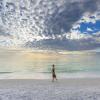
Atlantic Coast
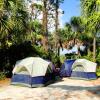
Beach Camping

Family-Friendly
Places to stay.
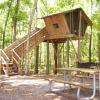
Campgrounds
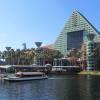
Travel Ideas
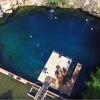
Accessible Travel
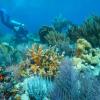
Eco-Friendly Travel
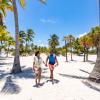
African American Heritage Travel
More Travel Ideas
Popular links.
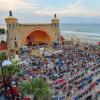
Florida Webcams
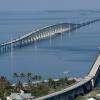
Toll Roads Info
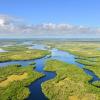
Travel Guides
Campus attractions at florida state university.
By Florence Beth Snyder
With four permanent campuses and 50 part-time programs operating on five continents, Florida State University’s global reach is so wide its International Programs Office is authorized to process U.S. passport applications.
How did FSU, based in Tallahassee , come to be such a collegiate colossus? A visit to its Heritage Museum helps to explain. The Museum preserves “the student experience on campus” by showing off the small artifacts that reveal the giant ways in which FSU has grown in stature and international influence since its modest beginnings in 1851.
The Museum’s focal point is the stunning Werkmeister Window, a 22-foot-tall stained glass tribute to FSU’s rich history and the spirit symbolized by its mascot, the Seminole Indian. The window took a decade to build and contains more than 10,000 individual pieces.
The FSU Master Craftsman Studio continues to create commemorative windows for the Heritage Museum and other venues both on and off campus. Studio students and teachers make their magic adjacent to the Gaines Street roundabout, where they can be inspired by the sight of their newest and most spectacular sculpture. The 40-foot-tall configuration of glass and metal and light was commissioned by the City of Tallahassee and christened “Declaration” to honor the community’s commitment to all things Seminole.
The Studio accepts commissions from private individuals as well as public bodies for statuary, busts, mosaics, glass art, paper moldings and even custom handmade pens.
Those who love art, architecture, and history never grow tired of FSU’s self-guided Monuments and Memorials Trail. All you need is a water bottle, walking shoes and the FSU history department’s fact-filled road map .
The Museum of Fine Arts , with its extensive permanent collection and frequent special exhibitions, is a great place to be on a rainy afternoon. The MFA begins its season with an international competitive exhibition and ends with the works of graduating student artists. In between, prepare to be surprised by exhibitions that challenge and delight both novices and experts.
While you’re in the Fine Arts building, stop by the box office and see what’s coming up in the way of theater, dance and music. FSU’s performing arts programs are farm teams for New York, the West End, and Hollywood. At FSU, the best seats in the Fallon Theater go for the price of a movie, and student recitals and open rehearsals in the intimate Opperman Music Hall are often free, and always a priceless chance to snap a selfie with the stars of tomorrow.

Flying skeletons? of course! It's the Florida State University Flying High Circus Halloween weekend performance.
- Colin Hackley for VISIT FLORIDA
Everybody loves a circus, and FSU is one of only two universities in the United States that has one. The FSU Flying High Circus has been thrilling audiences of all ages since 1947. It’s the three-ring real thing, performing several times a year under its own Big Top. Student volunteers rig the trapezes, sew the costumes and fly through the air for the sheer joy of making audiences deliriously happy.
Another great experience is a tour of the National High Magnetic Field Laboratory . The Mag Lab is the crown jewel in FSU’s academic treasure chest. Whether you’re looking to spark a child’s interest or rekindle your own youthful romance with science, the Mag Lab will not disappoint.
The Seminole football team is just the front row of a very deep athletic bench. Everyone from old-school baseball fans to recent converts to sand volleyball can find extraordinary athletes to root for. Learn about FSU’s athletic history at the Coyle E. Moore Athletic Center , located on the north side of Doak Campbell Stadium. Exhibits include FSU’s Hall of Fame and displays celebrating the football team’s national championships.
The women’s soccer team plays home games in the state-of-the-art Seminole Soccer Complex. From there, it’s a short walk to the FSU Softball Complex, Dick Howser Baseball Stadium and the Mike Long Track. FSU’s tennis teams, along with collegiate, community, and professional tournaments, hold court in the 1,000-seat Scott Speicher Tennis Center, which earned a “Top Notch” facility award from the United States Tennis Association.
Spectators are welcome to bring their own lawn chairs to the sand volleyball courts. FSU will be gunning for a spot in the NCAA-sanctioned National Sand Volleyball Championship tournament.
For those who prefer indoor sports, follow the crowds of student and local supporters to the basketball court at the Donald L. Tucker Civic Center or the cavernous volleyball venue, Tully Gym. The action is fast and the fans are enthusiastic.
Feel like curling up with a good book? Ask anyone on campus to point you to the Robert Manning Strozier Library. Show your photo ID, and head to the second floor Norwood Reading Room with its soothing bird’s-eye view of Landis Green, which, on a sunny spring day, offers another welcoming venue for reading, strolling or tossing a Frisbee.
FSU is known for infusing all its academic programs with a good dose of entrepreneurship, so it’s not surprising that even the smallest departments, clubs and sports teams have their own social media presence. It’s easy for anyone, anywhere, to know everything there is to do any day at FSU. Communications professor Mark Zeigler keeps his Twitter followers – 3,600 and growing – up to date on the highlights. Seminole fans will tell you the best way to see the FSU Marching Chiefs is in person at football games, and the second-best way is to watch on Periscope when Zeigler tweets out a video of field practice for the band’s next show.
When you go… Florida State University 600 W College Ave., Tallahassee, Fla., 32306 850-644-2525
PLACES TO REMEMBER

Tallahassee

Apalachicola

Gainesville
Related content.

Offbeat & Extraordinary: 5 Unforgettable Florida Tours
- 4 minute read
A behind-the-scenes candy factory tour at Sweet Pete’s in Jacksonville ends with a custom-made chocolate bar. - Sweet

A Walking Tour of Worth Avenue in Palm Beach
By Steve Winston Addison Mizner, the man who founded Worth Avenue in Palm Beach in the early 1900s, was a lot heavier than Rick Rose. And Rose...

Hollywood History Lives On, Aboard the African Queen
By Carlos Harrison She may be the only real movie star residing in Key Largo. Certainly she’s the only one still reprising her most famous role...

Airboating: Flying Low Throughout Florida
- 6 minute read
By Gary McKechnie It doesn’t seem normal when you’re on a boat that’s blasting its way across the water and, with seemingly solid...
STRATEGIC ALLIANCE PARTNERS
Florida State University
FSU | Admissions

- Admissions Home
- International
- Visitor Services

Experience Florida State University
We are excited about your interest in visiting Florida State University! We have a variety of opportunities to help you learn more about the admissions process and student life. To explore academic college and department tours options, visit: visit.fsu.edu/department-tours .
In-Person Events
Campus visits.
Join us for a general admissions information session and walking tour of campus. On this tour our student Ambassadors will guide you through campus stopping along the way to see classroom buildings, a model residence hall room, student dining options, and more.
To register for an in-person campus tour, please follow these steps:
- Select the date you wish to visit using the calendar.
- Select an available tour time.
- Complete the campus tour registration form.
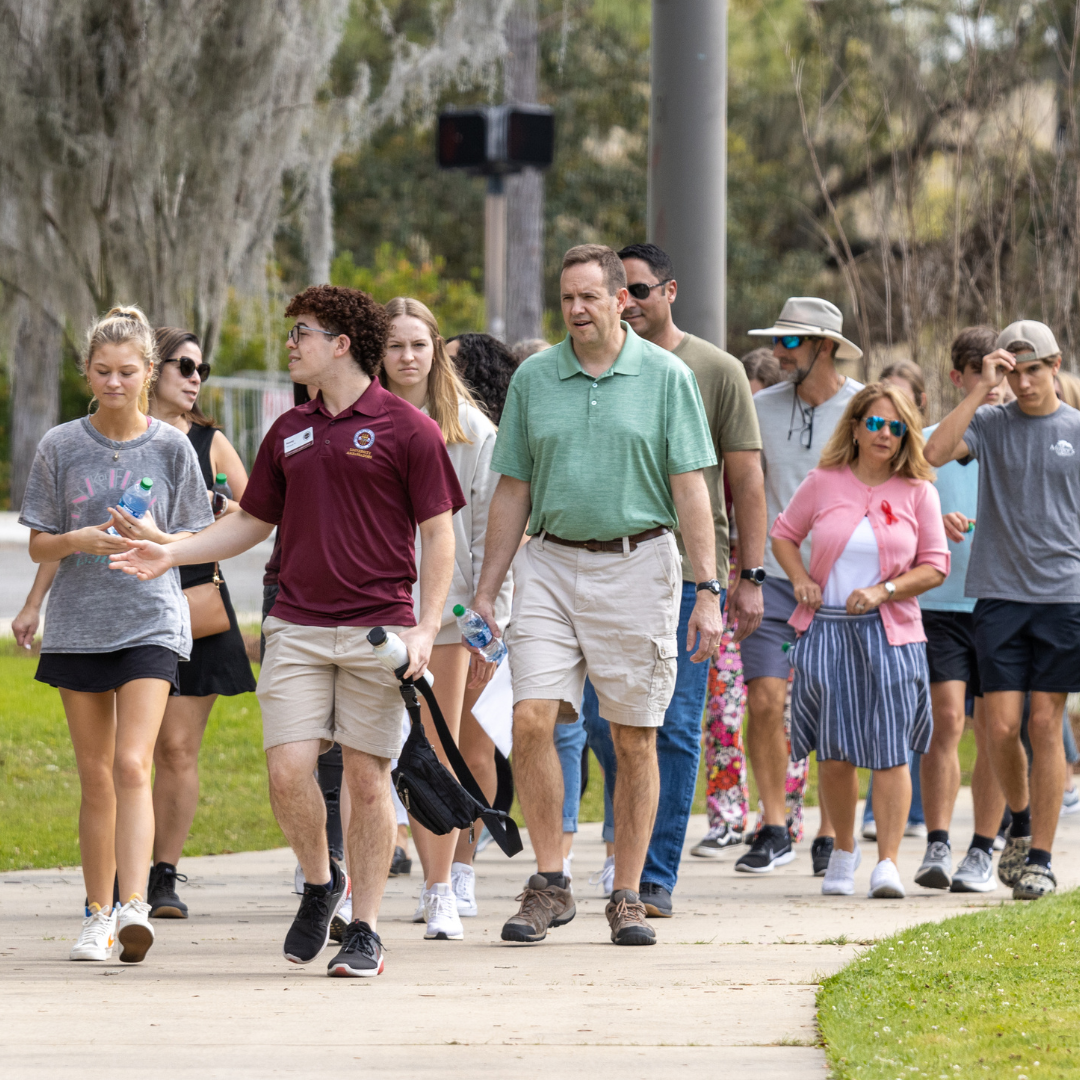
- Memorial Day: Monday, May 27, 2024
Spring classes begin January 8, 2024 and continue through April 26, 2024.
Virtual Events
Information sessions.
We're excited to get connected and want you to have every opportunity to get to know Florida State University! Our Admissions Counselors and Student Ambassadors are available through a variety of virtual events where you can experience FSU from anywhere in the world.
Currently, we are offering the following events:
- First-Year Admissions Information Sessions: Admissions counselors will explain how to apply as a first-year applicant and provide information about academic scholarships.
- Transfer Admissions Information Sessions: During this presentation transfer admission counselors will explain the application process and go over transfer admission requirements.
To register for a virtual event, please follow these steps:
- Select an available event time.
- Complete the registration form.
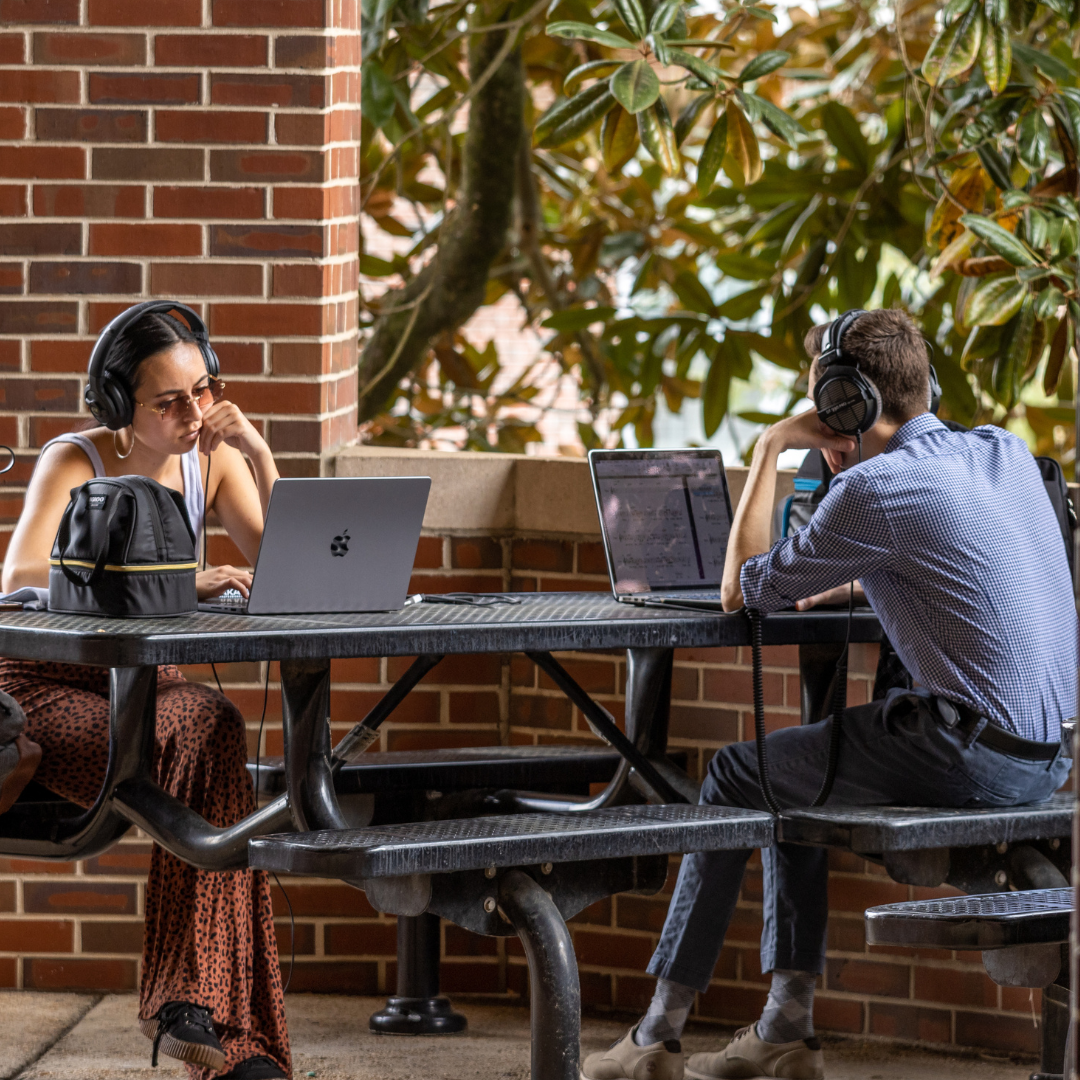
Florida State University
This is your Donation message .
on the home page and on interior pages. --> Academic Program Guide Toggle navigation Site Menu Home Minors Major Comparisons Certificates/Specialized Studies Bachelors/Masters Programs (current) Liberal Studies A-Z List Recreation and Tourism Management
College: Dedman College of Hospitality Degree: BS Specialized Admission: No Contact: Renee Dyehouse Address: Dedman College of Hospitality, University Center B 2200 Phone: (850) 644-8410 Email: [email protected]
Description of Major *Please Note: Face-to-face/in-person instruction of this program is available at BOTH the main campus in Tallahassee, FL and the Panama City, FL campus. This program is NOT available via Online/Distance Learning.* The Recreation and Tourism Management program offers courses leading to the Bachelor of Science degree. Professionals in this field manage facilities, programs, and events that enrich people’s lives though high quality and memorable leisure time experiences. Recreational activities are an integral part of healthy, fulling lifestyles and billions of dollars are spent annually on recreation programs, activities and facilities in public, private, and nonprofit recreation organizations. Consequently, there is a need for qualified professionals to manage programs, facilities, and services in various agencies and businesses. This is a service- oriented career in which professionals work with people of all ages and backgrounds. To succeed in this field, one should have organizational skills, initiative and energy, and enjoy working with people in an outdoor and/or busy environment.
Prerequisite Coursework Prerequisite Coursework (3 hours) The following course must be completed with a C minus or better: CGS 2100 (3) Microcomputer Applications for Business OR CGS 2518 (3) Spreadsheets for Business (preferred) Note: State-wide common prerequisites are always under review. For the most current information and for acceptable alternative courses, visit the “Common Prerequisites Manual.” This is available from the “Student Services” section of http://www.flvc.org . Requirements for Progression to the Upper-Division Major 1) Completion of at least 52 semester hours; 2) A cumulative grade point average of at least 2.00 on all college work attempted; 3) Satisfactory completion of required prerequisite course; and 4) Successful completion of 1st & 2nd GE English and 1st & 2nd GE Math coursework.
Requirements Major Program of Studies at FSU: (39 hours) All students in this program are required to earn a C minus or better in required coursework. Hospitality Core Requirements: (15 hours) HFT 3424 (3) Hospitality Financial Analysis HFT 3431 (3) Hospitality Managerial Accounting HFT 4502 (3) Integrated Marketing for Hospitality HFT 4224 (3) Hospitality Leadership and Ethics HFT 3941 (3-12) Internship Recreation and Tourism Management majors must complete a minimum of 3 credit hours of HFT 3941 (Management Internship) totaling 250 approved internship hours. Recreation & Tourism Major Area Requirements: (24 hours) LEI 1000 (3) Introduction to Recreation and Tourism LEI 3420 (3) Recreation Activities Leadership HFT 3700 (3) Tourism & Environment LEI 3843 (3) Commercial Recreation and Tourism LEI 4602 (3) Planning and Maintenance of Facilities Approved Electives (6) as outlined on department website HFT 4941 (0) Work Experience An updated list of approved recreation electives can be found on the department website: https://dedman.fsu.edu/current-students/undergraduate-programs/electives Required Work Experience Students enrolled in the Recreation and Tourism Management major must complete at least one thousand (1,000) hours of work experience in the recreation field. The work experience must be completed at the post- secondary level. Students must register for HFT 4941 Work Experience in their final semester to document this work experience. Digital Literacy: CGS 2100 (3) or CGS 2518 (3) or equivalent will meet the requirement for this major. Oral Communication Competency: (0-3 hours) Students must demonstrate the ability to orally transmit ideas and information clearly. This requirement may be met through with an approved college-level course, like SPC 1017 or SPC 2608. Minimum Program Requirements - Summary Total Hrs. Required 120 General Education 36 Major Coursework 39 Gen. Program Prerequisite 12 Minor Coursework 0 Computer Skills 0 beyond prerequisite course Oral Competency 0-3 Electives to bring total hours to 120
Mapping Mapping is FSU’s academic advising and monitoring system. Academic progress is monitored each Fall and Spring semester to ensure that students are on course to earn their degree in a timely fashion. Transfer students must meet mapping guidelines to be accepted into their majors. You may view the map for this major at www.academic-guide.fsu.edu/.
Remarks 1. A minimum of 45 hours at the 3000 level or above, 30 of which must be taken at this University. 2. Half of the major course semester hours must be completed in residence at this University. 3. The final 30 hours must be completed in residence at this University.
Employment Information Salary Information: For more information go to: National Association of Colleges and Employers (www.naceweb.org) or the Occupational Outlook Handbook (www.bls.gov/ooh/home.htm) provided by the U.S. Bureau of Labor Statistics. Representative Job Titles Related to this Major: Parks and Recreation Director, Guest Services Director, Athletics Supervisor, Cultural Arts Supervisor, Recreation Program Director, Recreation Supervisor, Campus Recreation Director, Facility Manager, Resort Activities Director, Aquatics Supervisor, Tour Guide/Director, Fishing Charters Manager, Marina Manager, Program Director, Outdoor Recreation Manager, Conservation Manager, Park Ranger, Camp Coordinator. Representative Employers: National and state recreation and park agencies, nonprofit community organizations, commercial recreation businesses, visitor and convention bureau, employee recreation programs, armed forces recreation, private clubs, resorts, colleges and universities, camps, tourism agencies, retirement communities, recreation/fishing product suppliers, equestrian centers, and commercial marinas.
Florida State University
FSU | Florida State University News
Site Navigation
Global navigation.

Florida State University News
The Official News Source of Florida State University
Home / News / Arts & Humanities / FSU Dedman College of Hospitality establishes beverage certificate program
FSU Dedman College of Hospitality establishes beverage certificate program

The Florida State University Dedman College of Hospitality has launched a new beverage certificate program in partnership with Republic National Distributing Company (RNDC), one of the nation’s leading wholesale beverage alcohol distributors.
RNDC pledged $500,000 to establish the RNDC Certificate in Beverage Management program for individuals pursuing careers involving beverage management, with a primary emphasis on sales and service in the hospitality and tourism industries.
FSU President Richard McCullough thanked RNDC and praised the new certificate program.
“Dedman College is one of the top-ranked colleges of hospitality in the United States and the world,” he said. “Corporate partnerships and investment from industry leaders like RNDC are crucial factors in building upon our global reputation and preparing our students for successful careers.”
Don Farr, dean of the Dedman College, said the timing is perfect for the college to offer the program.
“Understanding beverage management is a highly sought-after skill, and RNDC’s generosity will allow the college to provide numerous students with the opportunity to add this valuable credential to their resume,” Farr said. “RNDC’s support ensures our students will have the expertise needed to set themselves apart competitively as professionals.”
RNDC’s gift will create an endowment to maintain comprehensive, high-level programming with an emphasis on lagers, ales, wines, distilled spirits and coffees and teas. It also will provide much-needed support to the recruitment and retention of excellent faculty, international education opportunities (including study aboard programs), internships focused on the beverage sector and other scholarly activities, such as a guest lecture series and conference travel.
“RNDC is proud to support the Florida State University Dedman College of Hospitality,” said Bob Hendrickson, RNDC’s chief operating officer. “RNDC employs many FSU alumni who now support a myriad of suppliers and customers. We believe this donation will help more individuals become aware of the opportunities in the wine and spirits industry.”
The FSU Dedman College of Hospitality and RNDC celebrated the partnership with an Oct. 2 event on campus. Hospitality and Tourism seniors Amanda Manning and Brandon Smith were excited to join FSU President Richard McCullough to express their gratitude for the gift and their enthusiasm for the impact the RNDC Certificate in Beverage Management would have on Dedman students.
The Dedman College of Hospitality is ranked No. 14 in the world and No. 7 in the U.S. by the Academic Ranking of World Universities for 2021. Offering a variety of undergraduate, graduate and certificate programs, Dedman’s faculty and staff work with industry leaders and alumni to provide students with a valuable education, one-of-a-kind internships and opportunities to network or mentor.
To learn more about the RNDC Certificate in Beverage Management and how to support the FSU Dedman College of Hospitality, visit dedman.fsu.edu or contact Alex Douglas, director of development, at (850) 518-9001.
Search this website
Travel & tourism management.
T ravel & Tourism Management allows students to explore aspects of tourism development, policy development, global tourism, eco-tourism, tourism analysis, sustainable tourism, and the economic impact of tourism. The curriculum was designed for individuals with a specific interest in international tourism development, sustainability and environmental and psychological aspects of travel.
See the Travel & Tourism Management track sheet .
- Ranked the #6 program in the US by QS World University Rankings
- We have the most graduates earning the highest starting salaries compared to any other Florida State University hospitality program
- State of the Art Facilities
- A national, star-studded, five-day destination event showcasing the talents of the world’s most renowned wine and spirits producers, chefs, and culinary personalities.
- In-state: $6,566 per year ($205.58 per credit)
- Out-of-state: $18,964 per year ($617.87 per credit)
- In-person and online options
- Paying for school
Travel & Tourism Management careers
- Tourism Officer
- Tour Operator
- Travel Agency Manager
- Event Manager
- Sustainability Officer
- Marketing/Public Relations Manager
See testimonials from our former students


Education | Latest state survey of Florida college students…
Share this:.
- Click to share on Facebook (Opens in new window)
- Click to share on X (Opens in new window)
Daily e-Edition
Evening e-Edition
- Latest Headlines
- Environment
- Crime and Public Safety
- Transportation
Education | Latest state survey of Florida college students asks about Trump and Biden
Controversial questionnaire asks whether it’s hard to be friends with people who have voted for either of them.

GAINESVILLE — The latest round of a controversial state survey of Florida college and university students includes a slew of new questions probing how their political views have affected relationships on campus, including whether it’s hard to be friends with people who have voted for Joe Biden or Donald Trump.
The anonymous and voluntary annual survey, loaded with ideological and free-speech questions, was distributed by email and text to students and was to be completed by Friday. Some students said they viewed participation in the survey as a responsibility. Others, along with faculty members, expressed skepticism about the survey’s content, methodology and security.
Florida temporarily suspended the “intellectual freedom and viewpoint diversity” survey last year after distributing it for the first time in 2022, with a response rate of roughly 2% for students. The annual surveys are mandated by a law signed by Gov. Ron DeSantis in 2021 after Republican state lawmakers expressed concerns that conservative views were being suppressed on college campuses.
The law requires that the Board of Governors and the Board of Education “annually assess intellectual freedom and viewpoint diversity at certain institutions.” Faculty have yet to receive a survey this year as the law requires.
This year’s student survey has 52 questions, more than double the previous version.
The Biden-Trump questions are asked separately. The survey says, Do you agree or disagree with the following statement: “It’s hard to be friends with people who voted for Joe Biden” and then the same question with Trump’s name instead of Biden’s. Students are given a range of possible answers, from strongly agree to strongly disagree.
“The fact that they actually named the presidents – it really rubbed me the wrong way,” said Noah Barguez-Arias, 23, of Miami, a graduate student at the University of Florida.
“It’s kind of gross, it’s kind of slimy,” she added. “I feel like the universities just shouldn’t really worry about that… It doesn’t really matter what political beliefs or whatever identifying thing students believe in or what their professors or [administration] believe in as long as everyone is safe from harm.”
Some other new politically pointed questions ask whether the student has been socially excluded, harassed or threatened for sharing political views, lost friends because of their political beliefs and witnessed students with either liberal or conservative views receive “uncivil treatment.”
The survey also contains several new questions related to protests and freedom of speech on campus. It asks what actions are appropriate to challenge demonstrators or speakers, including using violence or attempting to block other students from attending an event, and what students think of how their administration has handled such matters or how they should.
And it asks students about their comfort level in disagreeing with a professor on a controversial topic and expressing their opinions because of fear of reprisal.
“We didn’t want our members to be taken advantage of for any political interest at all, so we felt the need to communicate that to our members,” said Cassie Urbenz, communications co-chair of UF’s Graduate Assistants United, which urged members not to take the survey. “The data can very easily be manipulated.”
Deanna Michael, an associate professor of higher education and policy at the University of South Florida, said too many survey questions focus on the dynamic between liberals and conservatives.
“Intellectual freedom and diversity is not really about political thought,” said Michael, a past chair of the Board of Governors’ Advisory Council of Faculty Senates, adding that she isn’t sure whether she will take the survey this year.
Natalie Schiffer, a 22-year-old University of Central Florida senior and president of her university’s chapter of the conservative group Turning Point USA, took the survey using a link sent to her via text. She encourages every student to participate.
Schiffer said she often feels uncomfortable expressing conservative views on campus and added that she has been flipped off by students for being affiliated with Turning Point USA. During lectures, she said, one of her professors frequently expresses his progressive beliefs.
“There are times when I feel that I cannot talk about the clubs I am involved in or I cannot speak on certain things out of fear of getting failed or having someone be mean or nasty to me,” she said.
Stephen Craig, a political science professor at the University of Florida and expert in question writing for survey research, said he was concerned about the lack of answer options on some of the questions about political views and that some could be confusing.
For instance, he cited the question, “Which of the following statements comes closer to your own personal opinion?”
Students could select from only two possible answers: “Speech is violence and should be treated as such by the university” or “It is important for a healthy campus life that the distinctions between speech and violence are maintained.”
“You not only have to write a question that gets at what you’re trying to measure,” he said, “but you need to do it in good conversational language and make it clear as it can be. ‘Speech is violence’ is not clear.”
This story was produced by Fresh Take Florida, a news service of the University of Florida College of Journalism and Communications.
More in Education

Education | Florida tells school principals they must fix abuses in book challenges

Education | DeSantis signs bill mandating kindergartners learn history of communism

SUBSCRIBER ONLY
Education | new florida college survey asks students: does a vote for trump or biden end a friendship.

Education | DeSantis signs law limiting school library book challenges by nonparents

Sound at sea, sargassum buries beaches and threatens tourism
Millions of tons of yellow-brown algae that have been swirling about in a region of the tropical Atlantic known as the Sargasso Sea are now breaking loose and landing on Florida shores
Keeping Florida's shoreline beautiful has long resulted in interesting piles of trash with, inevitability, a kitchen sink found somewhere among the mangroves.
Now there is a menace that buries everything else, yet needs to be cleaned up all the same: Deep piles of sargassum, a yellow-brown seaweed normally stuck out in the tropical Atlantic Ocean, are finding a way to foul many Southeast Florida beaches and Caribbean islands.
Tourism types are terrified.
Marshall Washington runs the Ron Jon Surf shop in Key West, just blocks from a beach where the stinky seaweed beached itself last year.
“It sucked. It was terrible. It was terrible,” he said. “There were times when it was really bad. Piles of about at least a foot and a half. The main beaches were hit pretty hard; certain days there were, pretty much, like nobody going to them.”
Researchers predict the return of sargassum to the eastern side of the Florida Keys later this month or in May. Washington is not happy.
“Last year was just not cool. Not cool at all,” he said. “I'm not looking forward to this year.”
'Great sargassum belt'
Millions of tons of yellow-brown algae have been swirling about in a region of the tropical Atlantic known as the Sargasso Sea. With no land in sight, ocean currents have been making the sargassum do figure-eights for centuries, the massive mats of algae suspended at the surface by its own air bladders.
In 2011, a massive amount of sargassum broke free and headed west. Scientists are not in agreement as to why
Modern-day credit for discovering the huge wayward mats of sargassum goes to satellites, which first detected the mats breaking free from centuries of doing donuts through the waves in their Atlantic Ocean parking lot.
The Great Atlantic Sargassum Belt was coined by scientists about the same time that oceanographer Ajit Subramaniam, who has run scientific research expeditions in the South Atlantic for 25 years, is credited for first coming across the endless blotches of sargassum in 2018 during one of his expeditions.
It has been growing at such a rate as to alarm scientists. Two years ago, the Great Atlantic Sargassum Belt grew to a combined 24.2 million tons — about four times the weight of the Great Pyramid of Giza — and it was recognized as the largest macroalgae bloom in the world.
After the sargassum died back that winter, it regrew in 2023 to a swath that stretched some 5,000 miles long and 300 miles wide, extending from West Africa to the Gulf of Mexico and weighed in at some 13 million tons.
The Optical Oceanography Laboratory at USF’s College of Marine Science tracks the sargassum under a $3 million grant it shares to use satellites to better predict where the massive mats will come ashore throughout the Caribbean and Gulf of Mexico.
USF’s Sargassum Watch reports the belt has regrown this summer to 9 million tons so far, and it is expected to continue to grow to near-record levels by the fall.
That doesn’t mean you have to cancel your vacation to Barbados.
“One thing to know about the Great Atlantic Sargassum Belt is not just one contiguous mass that's going to come and swallow the entire Caribbean and Florida,” said USF’s Brian Barnes, a lead sargassum researcher.
But it can bury your favorite beach. To get a heads up, Barnes is working on a tracking system that uses satellites in ways that can better predict where it is headed.
“We can identify the sargassum and know where the water is moving and thus where the sargassum will be moving and make some predictions on which beaches will be impacted.”
‘Very nice ecosystem’
Each floating mass of sargassum is its own remarkably beneficial ecosystem.
Sargassum mats provide food, refuge, and breeding grounds for fish, sea turtles, marine birds, crabs, and shrimp. The seaweed is packed with nutrition, belches oxygen, and sucks up enough carbon that it is notable in the fight against global warming.
The sargassum fish has adapted to look like its floating protector. The strange-looking flat fish with lots of fins knows of no other existence than within the nooks and crannies of the sargassum mat where it lives its entire life. It ambushes its prey, eats its own, and when being preyed upon leaps up out of the water and comes to rest atop the mass of seaweed, where it can live for far longer than its underwater stalker retains interest.
Scientists have discovered 110 animals that favor life within the seaweed including ten endemic species that live nowhere else on Earth. Sargassum’s wealth of riches draws game fish, creating a commercial fishery worth $100 million a year.
Barry Rosen, a seaweed expert at Florida Gulf Coast University in Fort Myers, calls the sargassum migration a normal, healthy environmental fact of ocean life.
“It is a mass of living organisms pumping oxygen into the air,” he said. “It's a very nice ecosystem, and it typically doesn't cause a problem.”
Until it does. And that is when it hits land.
'A devastating mainstay'
The Mexican federal government is building four sargassum-collecting vessels costing around $783,500 each it hopes will work to help protect its Caribbean coast from sargassum.
Hotels between Cancun and Puerto Morelos reported spending around $200,000 each on wages for beach clean-up personnel and transporting seaweed to disposal sites after the 2018 sargassum surge
Midsized hotels with large beachfronts are estimated to be spending thousands of dollars a day on removal, if not more, during peak moments
Records show the cleanup costs for sargassum were about $3.5 million in the greater Miami-Dade County area in 2019 and $120 million in the Caribbean in 2018.
The City of Key West spends about $1 million annually on sargassum cleanup, with more in reserve just in case. Even though the beaches are tiny in Key West, tourists rule.
Miami-Dade County, which spent more than $3.9 million on sargassum cleanup last year, has requested an additional $2 million from the state for upcoming cleanup efforts.
While USF and others are using grant money to determine where sargassum will go, Florida Atlantic University’s Harbor Branch Oceanographic Institute has received a $1.3 million grant from the Florida Department of Emergency Management to assess how to best dispose of the seaweeds once it has arrived.
Problems abound when sargassum isn’t cleaned up right away, not the least of which is the hydrogen sulfide it emits.
“Sargassum is becoming a devastating mainstay in parts of Florida’s coastal communities, particularly in the Florida Keys, where massive blooms continue to recur,” Brian Lapointe, algae bloom expert at FAU, told the university’s magazine. “Economically, a ‘severe’ sargassum event could have more than a $20 million impact in just the Keys alone.”
Sign up for WGCU's monthly environmental newsletter, the Green Flash, today.
Copyright 2024 WGCU. To see more, visit WGCU .

Bob Graham, former Florida governor and US senator with a common touch, dies at 87
B ob Graham, perhaps the most peculiar and popular politician of modern Florida history, died Tuesday. The Democratic two-term governor (1979-87) and three-term U.S. senator (1987-2005) was 87.
He passed away at 8:30 p.m. of old age with his wife, Adele, and family by his side in a retirement community in Gainesville.
"We’re very attached and love him so much, so proud of him," Adele told the Tallahassee Democrat in a phone interview. "He was an absolute devoted person in public service, to get things done for everybody.”
As a wealthy Harvard-educated lawyer from Miami Lakes whose legislator father lost a bid for governor that kindled his son’s early political interest, Graham skillfully balanced his aristocratic pedigree with a quirky common touch.
In an era when being from Miami-Dade County was no advantage, he chose a rural lawmaker — the late Lt. Gov. Wayne Mixson of Marianna — as his running mate in 1978. Campaign lapel pins touted them as the “Graham-Cracker ticket.”
For nearly 40 years in public life, Graham staged monthly “work days,” working jobs alongside everyday Floridians ranging from short-order cooks and baggage handlers to drug-enforcement agents and Capitol Press Corps reporters. He said it helped him keep in touch with regular people.
Although his critics called the work days a gimmick, after completing about 400 of them Graham reflected that they played a significant role in his political career and personal development.
"From the roof, you get a new horizon," Graham said after working construction at a high school in 2003. "A horizon of the opportunities that are available in this great country."
He was also known for carrying a little notebook wherever he went, jotting down minutiae and monumental events of his day — ranging from major Cabinet decisions and huge legislative dealings to something some resident told him or what time his airplane landed.
The pocket-sized notebook is a detail in Graham’s official Capitol portrait.
He once played Mr. Hucklebee in “The Fantasticks,” a 1985 fundraiser for the Florida Repertory Theatre in Palm Beach, and would sometimes mix lyrics from his song in the show — Plant a Radish — to make a point in a political speech.
His predecessor, Gov. Reubin Askew, was the first to make a cameo in the Capitol Press Corps skits, but Graham made it an annual tradition — performing with “mystery guests” ranging from Jimmy Buffett to the FAMU Marching 100.
In more solemn matters, Graham presided over 16 executions, including the first of modern times. That drew furious protesters to the Capitol and worldwide appeals in 1979 for commuting the sentence of John Spenkelink, who had killed a man in Tallahassee. Graham calmly insisted that capital punishment was the law and the governor had to carry it out when a killer’s appeals ran out.
Critics on both sides accused Graham of trying to look tough and offset the “Gov. Jello” tag hung on him by the editorial board of what was then called the St. Petersburg Times in an unrelated matter.
Florida was in the national spotlight in the late 1970s as singer Anita Bryant fought to repeal a Dade County gay rights ordinance. Two conservative state lawmakers put an amendment in the 1981 budget cutting aid to any state university where teachers encouraged “sexual relations between unmarried persons.” Although Graham couldn’t veto the budget language, he worked with then-Education Commissioner Ralph Turlington to get it declared unconstitutional.
During his term, Graham also dealt with hurricanes and later put in a “work day” sawing limbs when Hurricane Kate blew through Tallahassee in 1985.
He acted swiftly when truckers staged a strike that threatened fuel supplies to Florida’s vital agriculture and tourism industries. He activated 1,800 National Guard troops, escorted by Highway Patrol officers, to move some 600 truckloads of fuel.
As he began to retire from public life in 2004, he was hailed as as "a relentless advocate" for his positions "who could connect with everyday Floridians."
"Graham will be close to the top if not at the top when you think of great Florida statesmen," said Richard Sher, a political science teacher at the University of Florida, said in a 2004 New York Times profile.
His daughter, Gwen Graham, who was also in Congress, shared a family statement that Graham's favorite title wasn't governor or senator.
''It was the name his grandchildren gave him: Doodle. 'When I'm really good, they call me Super Doodle,' he liked to say," Gwen Graham wrote. "For 87 years, Bob Graham was so much more than really good. He was a rare collection of public accomplishments and personal traits that combined to make him unforgettable."
▶ Do you have memories, moments or photos you want to share about the life of former Gov. Bob Graham? Email us at [email protected] . Please include your full name, title and city of residence.
Bob Graham: Son of an engineer who became a developer then a governor
Daniel Robert Graham was born in Coral Gables on Nov. 9, 1936, and grew up in South Florida. His father, Ernest “Cap” Graham, was a mining engineer who moved to Florida in 1920 to manage development near the Everglades for a Pennsylvania sugar company. His family ran a dairy and later developed the agriculture land to Miami Lakes.
The elder Graham was elected to the state Senate six days before his famous son was born. He served two four-year terms and finished third in the Democratic primary for governor in 1944. He ran for the Dade County Commission in 1948 but lost again.
Bob Graham became class president at Miami High in the 1950s and was named “best all-around teen-aged boy” by the Miami Herald. In 1955, he followed his half-brothers Phil and Bill to the University of Florida, majoring in political science. There, he met Adele Khoury, whom he married in 1959.
They have four daughters, including former Tallahassee congresswoman Gwen Graham. She lost a bid for governor in 2018 and went on to become an assistant secretary in the U.S. Department of Education under President Joe Biden.
He attended Harvard law school, graduating in 1962 and moving back to Miami.
The 1960s saw another land boom and the family real estate development thrived. Lawsuits were loosening the grip of the old “Pork Chop Gang” on the malapportioned Florida Legislature, shifting power to the major cities and populous southern counties.
Graham, then 39, ran for the state House and began an undefeated political career of four decades.
The son of one school teacher and husband of another, Graham gravitated toward education in Tallahassee. He moved to the state Senate in 1970 and chaired an education committee there. He could have been appointed to a Cabinet seat when Education Commissioner Floyd T. Christian resigned in 1974, but Graham asked Askew not to choose him and the job went to Turlington, then a state House member.
Instead, Graham had decided to run for governor in 1978.
From the head of state to the Senate
Attorney General Bob Shevin, another Miamian, was the clear frontrunner that year. Lt. Gov. Jim Williams of Ocala was another strong contender and Graham’s name recognition was in single digits. But he campaigned tirelessly, ran a skilled advertising campaign and edged past Williams to get into a runoff.
“Graham used the campaign for governor to radically change his persona from D. Robert Graham, button-downed Harvard lawyer and millionaire dairy farmer and land developer, to folksy, down-home ‘Bob,’ “ history professor Steven G. Noll wrote in the University Press of Florida’s authoritative book, "The Governors of Florida."
The work day strategy and TV advertising got Graham 53 percent of the vote in the Democratic runoff. He went on to beat drugstore magnate Jack Eckerd, the Republican nominee, that November.
Four years later, Graham’s reelection would set an all-time record for governors. He beat U.S. Rep. L.A. “Skip” Bafalas of Palm Beach by nearly 800,000 votes — running up almost two-thirds of the statewide total.
Such popularity propelled Graham into a U.S. Senate race in 1986 against Republican Sen. Paula Hawkins of Maitland. She had won in the 1980 Reagan sweep, when Florida Democrats fractured themselves in a bitter primary that ousted Sen. Dick Stone. But Hawkins could not withstand the sixth-year jinx so many presidents run into — especially not running against Graham.
He resigned to take his U.S. Senate seat on Jan. 3, 1987, and Mixson served the three days remaining in Graham’s term.
Graham was easily reelected, beating former U.S. Rep. Bill Grant of Madison in 1992 and Republican Charlie Crist in 1998, who himself would later be elected governor in 2006.
In 18 years as a United States senator, Graham was best known for chairing the Senate Intelligence Committee. He led investigations of the 9/11 terror attacks and was an outspoken critic of the Saudi government. After leaving the Senate, he worked with the commission investigating the Deepwater Horizon oil disaster in the Gulf. And Graham voted against authorizing the invasion of Iraq.
He briefly ran for president in 2004 but dropped out early. He decided against running for a fourth term in the Senate, yielding the seat to Republican Mel Martinez.
A champion of civics: 'We must work together'
Regarding education, Graham was always concerned that young people don't know enough about how government works. He wrote a book about it, “America: The Owner’s Manual,” and after leaving the Senate in 2005, he published “Intelligence Matters,” an account of his work with the Senate committee. He later wrote a novel, “Keys to the Kingdom,” about Middle East intrigue.
Graham even published a children’s book, “Rhoda the Alligator.” Based on bedtime stories he told his 11 grandchildren, the book was aimed at preschoolers and kindergarteners. It combined lessons of accepting differences with the need to preserve the Everglades.
In Bob Graham's farewell speech to the U.S. Senate, he summed up his approach to the problems facing public servants in times of increasing partisanship – an approach that would guide his post-retirement push for civics education in the classroom.
"We must work together," he said, "to understand the problem and then develop solutions which are driven by pragmatism, not ideology."
This is a breaking news story. Please check back later for more.
Information from The Governors of Florida (University Press of Florida) and the USA TODAY NETWORK - FLORIDA archives was used in this obituary. Bill Cotterell is a retired Capitol reporter for United Press International and the Tallahassee Democrat .
This article originally appeared on Tallahassee Democrat: Bob Graham, former Florida governor and US senator with a common touch, dies at 87
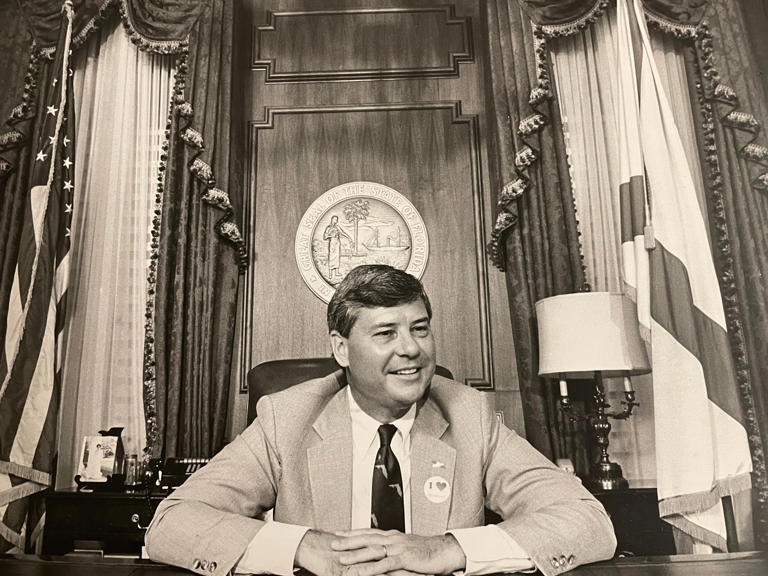

Sound at sea, sargassum buries beaches and threatens tourism
Keeping Florida's shoreline beautiful has long resulted in interesting piles of trash with, inevitability, a kitchen sink found somewhere among the mangroves.
Now there is a menace that buries everything else, yet needs to be cleaned up all the same: Deep piles of sargassum, a yellow-brown seaweed normally stuck out in the tropical Atlantic Ocean, are finding a way to foul many Southeast Florida beaches and Caribbean islands.
Tourism types are terrified.
Marshall Washington runs the Ron Jon Surf shop in Key West, just blocks from a beach where the stinky seaweed beached itself last year.
READ MORE: Atlantic sargassum mass growing early, setting records, eyeing Florida
“It sucked. It was terrible. It was terrible,” he said. “There were times when it was really bad. Piles of about at least a foot and a half. The main beaches were hit pretty hard; certain days there were, pretty much, like nobody going to them.”
Researchers predict the return of sargassum to the eastern side of the Florida Keys later this month or in May. Washington is not happy.
“Last year was just not cool. Not cool at all,” he said. “I'm not looking forward to this year.”
'Great sargassum belt'
Millions of tons of yellow-brown algae have been swirling about in a region of the tropical Atlantic known as the Sargasso Sea. With no land in sight, ocean currents have been making the sargassum do figure-eights for centuries, the massive mats of algae suspended at the surface by its own air bladders.
In 2011, a massive amount of sargassum broke free and headed west. Scientists are not in agreement as to why
Modern-day credit for discovering the huge wayward mats of sargassum goes to satellites, which first detected the mats breaking free from centuries of doing donuts through the waves in their Atlantic Ocean parking lot.
The Great Atlantic Sargassum Belt was coined by scientists about the same time that oceanographer Ajit Subramaniam, who has run scientific research expeditions in the South Atlantic for 25 years, is credited for first coming across the endless blotches of sargassum in 2018 during one of his expeditions.
It has been growing at such a rate as to alarm scientists. Two years ago, the Great Atlantic Sargassum Belt grew to a combined 24.2 million tons — about four times the weight of the Great Pyramid of Giza — and it was recognized as the largest macroalgae bloom in the world.
After the sargassum died back that winter, it regrew in 2023 to a swath that stretched some 5,000 miles long and 300 miles wide, extending from West Africa to the Gulf of Mexico and weighed in at some 13 million tons.
The Optical Oceanography Laboratory at USF’s College of Marine Science tracks the sargassum under a $3 million grant it shares to use satellites to better predict where the massive mats will come ashore throughout the Caribbean and Gulf of Mexico.
USF’s Sargassum Watch reports the belt has regrown this summer to 9 million tons so far, and it is expected to continue to grow to near-record levels by the fall.
That doesn’t mean you have to cancel your vacation to Barbados.
“One thing to know about the Great Atlantic Sargassum Belt is not just one contiguous mass that's going to come and swallow the entire Caribbean and Florida,” said USF’s Brian Barnes, a lead sargassum researcher.
But it can bury your favorite beach. To get a heads up, Barnes is working on a tracking system that uses satellites in ways that can better predict where it is headed.
“We can identify the sargassum and know where the water is moving and thus where the sargassum will be moving and make some predictions on which beaches will be impacted.”
‘Very nice ecosystem’ Each floating mass of sargassum is its own remarkably beneficial ecosystem.
Sargassum mats provide food, refuge, and breeding grounds for fish, sea turtles, marine birds, crabs, and shrimp. The seaweed is packed with nutrition, belches oxygen, and sucks up enough carbon that it is notable in the fight against global warming.
The sargassum fish has adapted to look like its floating protector. The strange-looking flat fish with lots of fins knows of no other existence than within the nooks and crannies of the sargassum mat where it lives its entire life. It ambushes its prey, eats its own, and when being preyed upon leaps up out of the water and comes to rest atop the mass of seaweed, where it can live for far longer than its underwater stalker retains interest.
Scientists have discovered 110 animals that favor life within the seaweed including ten endemic species that live nowhere else on Earth. Sargassum’s wealth of riches draws game fish, creating a commercial fishery worth $100 million a year.
Barry Rosen, a seaweed expert at Florida Gulf Coast University in Fort Myers, calls the sargassum migration a normal, healthy environmental fact of ocean life.
“It is a mass of living organisms pumping oxygen into the air,” he said. “It's a very nice ecosystem, and it typically doesn't cause a problem.”
Until it does. And that is when it hits land.
'A devastating mainstay' The Mexican federal government is building four sargassum-collecting vessels costing around $783,500 each it hopes will work to help protect its Caribbean coast from sargassum.
Hotels between Cancun and Puerto Morelos reported spending around $200,000 each on wages for beach clean-up personnel and transporting seaweed to disposal sites after the 2018 sargassum surge
Midsized hotels with large beachfronts are estimated to be spending thousands of dollars a day on removal, if not more, during peak moments
Records show the cleanup costs for sargassum were about $3.5 million in the greater Miami-Dade County area in 2019 and $120 million in the Caribbean in 2018.
The City of Key West spends about $1 million annually on sargassum cleanup, with more in reserve just in case. Even though the beaches are tiny in Key West, tourists rule.
Miami-Dade County, which spent more than $3.9 million on sargassum cleanup last year, has requested an additional $2 million from the state for upcoming cleanup efforts.
While USF and others are using grant money to determine where sargassum will go, Florida Atlantic University’s Harbor Branch Oceanographic Institute has received a $1.3 million grant from the Florida Department of Emergency Management to assess how to best dispose of the seaweeds once it has arrived.
Problems abound when sargassum isn’t cleaned up right away, not the least of which is the hydrogen sulfide it emits.
“Sargassum is becoming a devastating mainstay in parts of Florida’s coastal communities, particularly in the Florida Keys, where massive blooms continue to recur,” Brian Lapointe, algae bloom expert at FAU, told the university’s magazine. “Economically, a ‘severe’ sargassum event could have more than a $20 million impact in just the Keys alone.”
Copyright 2024 WGCU


- River City Live
- Newsletters
WEATHER ALERT
2 river flood warnings in effect for Brantley and Columbia Counties
St. johns county named finalist for first florida museum of black history.
Jonathan Lundy , Digital Producer , Jacksonville
St. JOHNS COUNTY, Fla. – St. Johns County is currently the number one ranked location by the Florida Museum of Black History Task Force, followed by Eatonville/Orange County, Sarasota, and Opa-locka.
The task force invited SJC to a special meeting in Tallahassee on April 19 to answer questions about its proposal and the top three sites will go to the state for final consideration.
Recommended Videos
The St. Johns County Board of County Commissioners (BOCC) approved a motion to approve the draft and negotiation of a Purchase and Sale Agreement with Florida Memorial University to develop a campus-style museum of African American history, performing arts, cultural exhibits, and more.
“Let’s go get this and make it happen!” County Commission Chair Sara Arnold said.
Tera Meeks, Tourism and Cultural Development Director cited a cultural marketing review from 2020 that indicated SJC as a world-class African American heritage destination.
Meeks’ presentation to the BOCC referred to a feasibility study that provided a recommendation for a financially self-sustaining performing arts facility that included a 500-seat main theater with a 200-seat black box theatre along with supporting facilities and amenities.
“We plan to take charter buses to Tallahassee with our community partners to continue our collective pitch that St. Johns County is the premiere location for this museum,” Meeks said.
This would be part of the county’s plan to build the museum on the campus-style location.
Joy Andrews, County Administrator, emphasized the critical importance of location.
“There is not another locale within the state better poised for this museum. St. Johns County embodies Florida’s history at first sight. We possess the power to cultivate and uphold a Black History Museum here. Our community network is robust, our partnerships strong. It’s our duty to champion culture, to pay homage to history, ensuring this endeavor thrives now and for generations to come,” Andrews said.
Copyright 2024 by WJXT News4JAX - All rights reserved.
About the Author
Jonathan lundy.
Hailing from Detroit, Jonathan is excited to start his media career at News4JAX in November 2023. He is passionate about telling stories that matter to the community and he is honored to serve Jacksonville.
Click here to take a moment and familiarize yourself with our Community Guidelines.
University of South Florida
Main Navigation

USF experts ready to contribute to hurricane- and storm-related coverage
- April 17, 2024
University News
Experts around the world are predicting the 2024 hurricane season will be very active and the University of South Florida offers a variety of experts to discuss related topics and new trends. Their expertise includes storm surge, flooding, effects of sea-level rise, extreme heat, resiliency of bridges and other transportation structures, effects on power grids, and implications for older adults and those with health-related concerns.
Listed below are some of the experts, along with their focus areas. Members of the media interested in an interview are asked to contact Kevin Watler at [email protected] or 407-267-8402.
Hurricanes, Wind, Weather Events
Jennifer Collins (College of Arts and Sciences) is a professor in the School of Geosciences who is interested in the interaction between large-scale climatic patterns such as the El Niño-Southern Oscillation (ENSO) and the Madden-Julian Oscillation and seasonal patterns of tropical cyclone activity in multiple oceanic basins. She studies environmental factors influencing the interannual and intraseasonal variation of hurricane activity in the eastern north Pacific and Atlantic oceans. She also examines human behavior relating to hurricane evacuation.
Storm Surge and Coastal Subsidence
Yonggang Liu (College of Marine Science) is an associate professor and director of the Ocean Circulation Lab who maintains a coordinated real-time coastal ocean observing and modeling program. He can discuss short-term storm-surge scenarios and coastal flooding based on his lab’s daily automated ocean model forecast systems for the West Florida Continental Shelf and Tampa Bay. Liu also has insights on hurricane intensification forecasts for Florida’s Gulf Coast.
Gary Mitchum (College of Marine Science) , associate dean, is a global sea-level rise expert who has served on the Tampa Bay Climate Science Advisory Panel that helps to establish local sea-level rise projections. He can comment on the broader connections between climate change and hurricanes, as well as the impacts of sea-level rise, storm surge and hurricanes in Tampa Bay.
Timothy Dixon (College of Arts and Sciences) is a professor in the School of Geosciences who uses satellite geodesy (GPS, InSAR) to study coastal subsidence as well as earthquake and volcano deformation, aquifer depletion and melting of ice sheets and glaciers. He can talk about the effects of hurricanes as they relate to coastal flooding and long-term changes in the coastline.
Don Chambers (College of Marine Science) is a professor who uses satellite observations to understand climate change and ocean dynamics. He was a lead author on the latest climate assessment by the United Nation’s Intergovernmental Panel on Climate Change and has been a member of several NASA satellite science teams. Chambers can discuss the links between hurricanes, climate change and long-term ocean warming.
Mark Luther (College of Marine Science) is an associate professor who uses real-time ocean observations with numerical models of ocean currents to address various challenges ranging from maritime safety and security to water quality and ocean responses to climate change. Luther can comment on port security, storm surge and the broader relationship between hurricanes, climate change and the ocean.
Flooding
Tom Frazer (College of Marine Science/Florida Flood Hub) is dean of the USF College of Marine Science and executive director of the Florida Flood Hub for Applied Research and Innovation based at USF. He can discuss flood planning, flood resilience and how the Flood Hub helps communities prepare for flood events and other natural hazards.
“Florida has thousands of miles of rivers, streams and canals that crisscross inland communities. These systems can quickly be overwhelmed by extreme rainfall events. We have a large part of the state which is not on the coast and will continue to be subject to flood threats moving forward.”
Chris Meindl (College of Arts and Sciences) is an associate professor of geography who specializes in human-environment interactions in Florida. His research touches on people’s perceptions of environmental issues, especially natural hazards and water resources, including Florida’s springs.
Donny Smoak (College of Arts and Sciences) is a biogeochemist who studies soil carbon accumulation and accretion rates in coastal wetlands, which are indicators of long-term ecosystem stability. His research examines the fate of these ecosystems in the context of climate change, rising sea level and extreme events such as hurricanes.
Barnali Dixon (College of Arts and Sciences) is a GIS professor and executive director for the Initiative on Coastal Adaptation and Resilience. Her research focuses on the development and application of tools and systems for modeling and managing land-water interfaces in the context of extreme weather events and climate change. She is part of a research team developing a web-based application that gathers crowdsourced data in coastal communities to identify flooding risks and inform emergency managers and policy.
Extreme Heat
Thomas Culhane (Patel College of Global Sustainability) is an associate professor of instruction, and a subject matter expert in climate mitigation and adaptation. He can discuss how we can mitigate and even harness the effects of extreme heat and the extreme power of storms by seeing them and using them as sources of energy. His team at the Rosebud Continuum Eco-Science Demonstration Center uses community-scale biodigesters, windmills and greenhouses to exploit hotter temperatures and stronger winds to offset fossil fuel use.
“We can turn liabilities into assets until the implementation of all our best ‘drawdown’ technologies and ideas can bring the atmospheric greenhouse gas load down to safe levels.”
Hurricanes and Bridges, Transportation Infrastructure and Power Grids
Zachary Haber (College of Engineering) is an assistant professor of structural engineering. Before joining USF, he spent eight years as a researcher with the U.S. Federal Highway Administration. His research focus includes ultra-high-performance concrete (UHPC), seismic design and bridge preservation.
“There are new technologies like ultra-high-performance concrete that can help make bridges and other transportation infrastructure more resilient to the effects of hurricanes and other natural hazards. In a nutshell, UHPC is five times stronger than conventional concrete.”
Lingling Fan (College of Engineering) is a professor of electrical engineering who can talk about how electric companies prepare power grids for oncoming storms, the steps they take to restore electrical service after a loss of power and what that means to consumers.
“Our lab uses computer simulations to examine the performance of power grids. This helps electric companies across the nation evaluate the vulnerability of a power grid during extreme events such as hurricanes.”
Hurricanes and Health
Gwendolyn Clayton (Morsani College of Medicine) is an assistant professor in the Department of Family Medicine and a primary care physician who can discuss preparing for hurricanes from a health perspective, whether staying in place or evacuating.
“It’s important for people to plan how they will fill prescriptions and ensure that they have enough other medications on hand. There are important considerations that, for example, dialysis patients should know about. And parents need to plan for things like how much water is needed for infants taking baby formula, children and adults each day, as well as what should be included in a first-aid kit to last a few days to a few weeks.”
Judith Becker Bryant (College of Arts and Sciences) is a psychology professor who can comment on how to prepare children for traumatic events such as hurricanes and the impact that such events have on children. She’s a national expert on developmental psychology with a specific emphasis on language and social development in young children.
Kristin Kosyluk (College of Behavioral and Community Sciences) is an assistant professor in the Department of Mental Health Law & Policy. She can comment on the stress and anxiety that storms and hurricanes can cause and the impact of natural disasters on people living with mental illnesses.
Hurricanes and Older Adults
Lindsay Peterson (College of Behavioral and Community Sciences) is an assistant professor of aging studies whose research focuses on the impact of hurricanes and other disasters on older adults in nursing homes, assisted living communities, and in the community overall, including disaster preparation and response for those with dementia. In partnership with the Alzheimer’s Association and 211 Tampa Bay Cares, Peterson has developed a disaster preparedness guide and a series of videos to help older adults prepare for disasters, particularly family caregivers of people with dementia. She is also developing an app to assist older adults in critical disaster preparedness decision-making, such as whether to evacuate or shelter in place.
Kathy Black (College of Behavioral and Community Sciences) is a professor of aging studies whose work focuses on healthy aging in a community.
“Older adults are particularly vulnerable to natural disasters. The majority of us experience multiple chronic conditions with age, which can impact our endurance to weather a storm, and a variety of circumstances can account for why older adults are particularly vulnerable.”
Community Preparedness and Recovery
Robin Ersing (College of Arts and Sciences) is a public affairs professor who studies community-based disaster preparedness to promote resilience in post-storm recovery. Ersing has been involved in international research in Ghana and Indonesia to study the experience of women exposed to natural hazards.
Elizabeth Dunn (College of Public Health) is an instructor who specializes in community resilience, including disaster mitigation, preparedness, response and recovery for vulnerable populations. Her experience includes community education and outreach, developing exercises to assess response capabilities and identify strategies for improved planning and mass care (sheltering, feeding, health) planning and operations. She can discuss preparations for the upcoming hurricane season, disaster mitigation and planning strategies for households and businesses, training programs for individuals in hurricane-prone areas, sheltering and hurricane evacuation decisions.
Amber Mehmood (College of Public Health) is an associate professor who leads the global disaster management, humanitarian relief and homeland security concentration in the USF College of Public Health. She specializes in community-based disaster preparedness, hospital-based mass casualty preparedness and response, humanitarian relief, community education and outreach, especially directed at disadvantaged and culturally diverse vulnerable populations.
Economics/Tourism and Hospitality
Michael Snipes (College of Arts and Sciences) is an instructor of economics who studies the economic impact of tourism. Other areas of study include family dynamics and the link between macro-economic fluctuations and suicide.
Social Media and Storms
Kelli Burns (College of Arts and Sciences) is an associate professor and director of undergraduate programs for the Zimmerman School of Advertising & Mass Communications. Burns is an expert on social media and can discuss the growing role of Facebook, X, and other forms of social media in natural disasters. She has studied extensively how social media is integrated into our lives and changes patterns of communication.
Return to article listing
Hurricane , Kevin Watler
News Archive
Learn more about USF's journey to Preeminence by viewing Newsroom articles from past years.
USF in the News
Washington post: how did life on earth begin cracks may have been the key..
April 16, 2024
Wall Street Journal: Iran’s Attack Is a Show of Weakness
April 14, 2024
WTSP-TV: USF students are 3D-printing 'oyster bricks' to build back declining populations
April 12, 2024
Business Observer: USF embraces opportunities to connect with more businesses
April 10, 2024
More USF in the News
Florida State University
FSU | Dedman College of Hospitality
Main navigation Pulldown
Dedman college of hospitality, lead. explore. inspire., gain the skills and knowledge necessary to be successful as an entrepreneur in the hospitality industry., current students, mse, hospitality entrepreneurship, your degree, your way., the master of entrepreneurship - hospitality entrepreneurship major - is an online degree program that focuses on real-world opportunities in a growing industry..

Whether you aspire to start your own venture or join an established company, you’ll acquire and apply the skillsets necessary to succeed in a wide range of settings.

The collaborative program between the Dedman College of Hospitality and College of Entrepreneurship provides an advanced curriculum focused on the importance of leadership and innovative thinking.

MSE graduates will be fully prepared to pursue careers in the private or public sectors, including government and academic professions.
Application Deadlines
Summer: March 1
Fall: July 1
Spring: November 1
Start your application at admissions.fsu.edu/gradapp
View Brochure
Contact [email protected] or 850.644.7125.
Admission Requirements
Admission to graduate study at Florida State University is a two-fold evaluation process. The Office of Admissions determines eligibility for admission to the University, and the academic department determines admissibility to the degree program. Final admission to the University is subject to approval by the Office of Admissions. The minimum university graduate admission requirement is all students must hold a bachelor’s or graduate degree from a regionally accredited U.S. institution, or a comparable degree from an international institution.
Admissions decisions will be sent via email to the email address included in your application. Must apply before the posted deadline.
Minimum University Admission Requirements:
- A bachelor’s degree from a regionally accredited U.S. institution, or comparable degree from an international institution; or
- A graduate degree from a regionally accredited U.S. institution, or comparable degree from an international institution
Students must also be in good academic standing at their last institution in order to be considered for graduate study.
Application Checklist
- Current résumé / CV
- Personal statement questions (answered within the online application)
- Two (2) letters of recommendation
- Scores from a nationally standardized graduate admission test (i.e. GRE or GMAT) *
- Official (sealed) transcripts from each college or university attended
*Florida State University has made the decision to waive the Graduate Records Examinations (GRE) requirements and the Graduate Management Admission Test (GMAT) for Master’s and Specialist applicants until Fall 2026.
International Experience
An international program (IP) experience is highly encouraged. Students will receive three (3) credit hours for opting to spend time abroad. These opportunities are available throughout the year and will be part of a course curriculum.
Explore Panama
Explore Florence
- About the College
- Faculty & Staff
- Dean's Council
- Little Dinner Series
Faculty & Staff Resources
- Add Event to Calendar
- Travel Request Form
Academic Programs
- Undergraduate
- Hospitality & Tourism Management
- Global Club Management & Leadership
- Recreation & Tourism Management
- Hospitality Entrepreneurship
Prospective Students
- Incoming Freshmen
- Transfer Students
- Scholarships & Financial Aid
- Student Experience
- Schedule A Tour
- Apply Online
- Academic Advising
- Internships
- Study Abroad
- Student Organizations
Internship Forms
- Student Report Form
- Employer Evaluation Form
Alumni & Friends
- FSU Alumni Association
- The Dean's Club
- Make a Gift
- Hall of Fame
- Emerging Professionals
- Cecil B. Day Ethics Award
Industry Events
- Career & Internship Expo
- Founders Leadership Summit
- Internship Prep Workshops
- Image Galleries

IMAGES
VIDEO
COMMENTS
The FSU Visitor Center at University Center Building B is undergoing some renovation work to improve our facilities and services. We apologize for any inconvenience this may cause and we thank you for your understanding and cooperation. During this time, our building entrance and front desk area may change depending on the progress of the ...
Hospitality & Tourism Management. The Hospitality and Tourism Management major is student focused and industry driven, guided by best practices and a global perspective. You'll receive a unique personalized experience every step of the way along your academic journey. The industry engagement, internships and student activities in this major ...
The Dedman College of Hospitality offers you a personalized experience. Throughout your academic journey, you will be guided by our family of faculty and staff. We will provide you with opportunities to develop your knowledge, put it into practice and engage with global industry leaders in the dynamic field of hospitality management.
Tourism and recreation activities are an integral part of people's lifestyles, and billions of dollars are spent annually on recreation, tourism and events in public, private and nonprofit recreation agencies and businesses. Academic Advising Admissions Academic Map 2024-25 Curriculum Work/Internship Requirements.
We define a Group Tour as 10 or more prospective students visiting campus to learn more about the college experience and Florida State University's campus culture. Group Tour Experiences can vary depending on the size of the group and the date of the visit. To begin planning your group's visit to Florida State University, please read the Group ...
The Seminole Experience The Seminole Experience takes fans on a walking tour through some of Florida State's most historic athletic venues. Experience Guides deliver the story of the program's rich history and traditions through stops that include Doak Campbell Stadium, Dick Howser Stadium, JoAnne Graf Field, and The Seminole Soccer Complex and provide great group photo opportunities.
For a list of University-wide honor societies officially recognized by Florida State University, requirements, and other information, see the "University Honors Office and Honor Societies" chapter of the General Bulletin. Definition of Prefixes. HFT—Hospitality Management. LEI—Leisure. Courses for Recreation and Tourism Management Majors ...
FLORIDA STATE UNIVERSITY VISITOR GUIDE A PREEMINENT FLORIDA UNIVERSITY fsu.edu FSU_VG_2015-16.indd 1 11/17/15 10:03 AM. 2 Florida State University Visitor Guide FSU_VG_2015-16.indd 2 11/17/15 10:03 AM. 2016 3
The Florida State University Board of Trustees unanimously approved Friday the renaming of the Dedman School of Hospitality to become FSU's 18th college. ... This spring, the college will add a new undergraduate degree program in Recreation, Tourism and Events. The program was previously housed in the College of Applied Studies at FSU Panama ...
Seminole fans will tell you the best way to see the FSU Marching Chiefs is in person at football games, and the second-best way is to watch on Periscope when Zeigler tweets out a video of field practice for the band's next show. When you go…. Florida State University. 600 W College Ave., Tallahassee, Fla., 32306. 850-644-2525.
Campus Visits. Join us for a general admissions information session and walking tour of campus. On this tour our student Ambassadors will guide you through campus stopping along the way to see classroom buildings, a model residence hall room, student dining options, and more. To register for an in-person campus tour, please follow these steps:
College: Dedman College of Hospitality. Degree: BS. Specialized Admission: No. Contact: Renee Dyehouse. Address: Dedman College of Hospitality, University Center B 2200. Phone: (850) 644-8410. Email: [email protected]. Description of Major. *Please Note: Face-to-face/in-person instruction of this program is available at BOTH the main campus in ...
Admission to the Hospitality and Tourism Management degree requires the following: 1) Completion of at least 52 semester hours; 2) Satisfactory completion of all required prerequisite coursework; 3) A cumulative grade point average of at least 2.00 on all college work attempted; 4) Successful completion of 1st & 2nd GE English and 1st & 2nd GE ...
Contact: Renee Dyehouse. Address: Dedman College of Hospitality, University Center B 2200. Phone: (850) 644-8410. Email: [email protected]. Description of Major. *Please Note: Face-to-face/in-person instruction of this program is available at BOTH the main campus in Tallahassee, FL and the Panama City, FL campus.
Tarik Dogru is an expert in tourism economics and hospitality finance with focus on inbound and outbound tourism demand, tourism development, employment in hospitality and tourism, economic impact analysis, sharing economy (i.e., Airbnb), and hotel investment and performance analysis.
The University of Florida campus is located "where nature and culture meet" - in the city of Gainesville, which has been repeatedly named one of the top places to live in the U.S. The state of Florida has a dynamic hospitality and tourism industry that receives more than 100 million visitors annually. It is a great place to live, study ...
The Florida State University Dedman College of Hospitality offers three uniquely designed undergraduate majors, as well as several minor and certificate programs. ... The Recreation and Tourism program offers organization, marketing and management skills suitable for a career in public recreation, nonprofits, armed forces recreation, private ...
The Florida State University Dedman College of Hospitality has launched a new beverage certificate program in partnership with Republic National Distributing Company (RNDC), one of the nation's leading wholesale beverage alcohol distributors.
A national, star-studded, five-day destination event showcasing the talents of the world's most renowned wine and spirits producers, chefs, and culinary personalities. In-state: $6,566 per year ($205.58 per credit) Out-of-state: $18,964 per year ($617.87 per credit) In-person and online options. Paying for school.
The Recreation and Tourism Management Major is offered by Florida State University. Tourism and recreation activities are an integral part of people's lifestyles, and billions of dollars are spent annually on recreation, tourism and events in public, private and nonprofit recreation agencies and businesses. ...
April 17, 2024 at 8:46 a.m. GAINESVILLE — The latest round of a controversial state survey of Florida college and university students includes a slew of new questions probing how their political ...
The City of Key West spends about $1 million annually on sargassum cleanup, with more in reserve just in case. Even though the beaches are tiny in Key West, tourists rule. Miami-Dade County, which spent more than $3.9 million on sargassum cleanup last year, has requested an additional $2 million from the state for upcoming cleanup efforts.
Former Florida Gov. Bob Graham seems very pleased with Tallahassee's potential in the year 2000 as he sits in his office only May 11, 1984. Bob Graham, perhaps the most peculiar and popular ...
The Hospitality Management minor consists of 12 hours, including both HFT 1000 (3) Introduction to Hospitality and Tourism and HFT 3240 (3) Managing Service Organizations. The remaining two courses (6 hours) may be any HFT prefix course. At least 6 of the 12 credits must be completed at FSU. Students must earn a grade of C- or higher in all ...
Records show the cleanup costs for sargassum were about $3.5 million in the greater Miami-Dade County area in 2019 and $120 million in the Caribbean in 2018. The City of Key West spends about $1 ...
The St. Johns County Board of County Commissioners (BOCC) approved a motion to approve the draft and negotiation of a Purchase and Sale Agreement with Florida Memorial University to develop a ...
Cynthia Johnson. Department Chair, Global Club Management and Leadership & Recreation and Tourism Management; [email protected] 850.645.9980
April 17, 2024. University News. Experts around the world are predicting the 2024 hurricane season will be very active and the University of South Florida offers a variety of experts to discuss related topics and new trends. Their expertise includes storm surge, flooding, effects of sea-level rise, extreme heat, resiliency of bridges and other ...
Admission to graduate study at Florida State University is a two-fold evaluation process. The Office of Admissions determines eligibility for admission to the University, and the academic department determines admissibility to the degree program. ... Legal Environment of Hospitality & Tourism Operations: 3: Marketing Strategy: 3: Ethics in ...